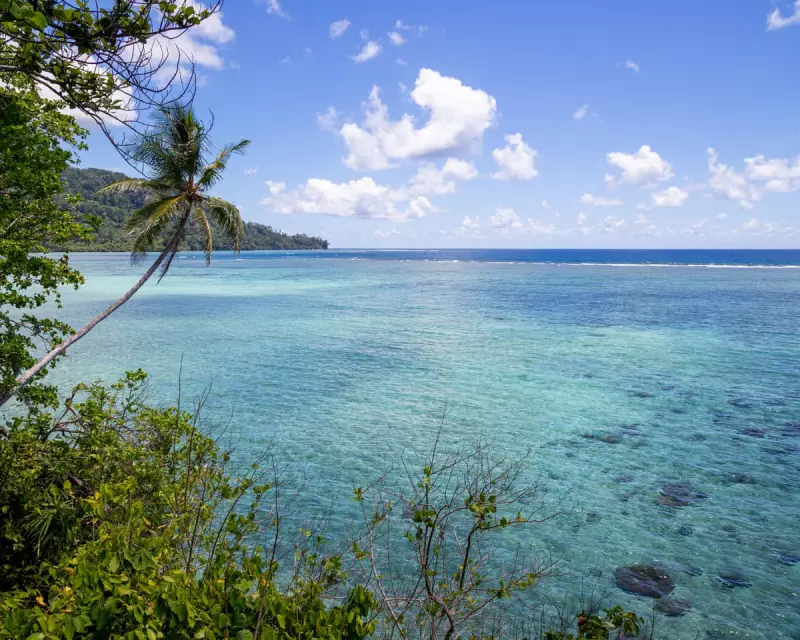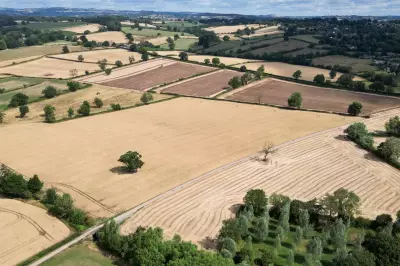
Dr Katy Soapi's earliest memories are woven with the rhythm of the sea. Growing up on Rendova Island in the western Solomon Islands, her life was intrinsically connected to the ocean's embrace. "I remember when the big waves came, we would dive under them and come up laughing on the other side," she recalls. "Being part of those natural elements brought me so much joy."
From Medicinal Plants to Ocean Advocacy
Despite her academic excellence in chemistry and pioneering research into medicinal plants, which saw her become the first woman from Solomon Islands to earn a PhD in natural sciences, Soapi's heart remained with her first love: the ocean. Her studies took her from Fiji to Australia and the UK, but her most profound work would bring her back home to defend one of the Pacific's last untouched sanctuaries – Tetepare Island.
The Battle to Save a Sacred Island
In the mid-1990s, the Solomon Islands faced an environmental crisis as commercial logging operations swept across the nation. Soapi witnessed firsthand the devastation on her home island of Rendova, where crystal-clear rivers turned brown with silt and the vibrant forest chorus faded into an eerie silence. When rumours emerged that Tetepare – considered tabu, or sacred ground – faced a similar fate, the local communities recognised this as more than an environmental threat; it was an assault on their identity and heritage.
"To lose Tetepare would have been like losing part of ourselves," Soapi explains. "It wasn't just about trees any more, it was about identity and heritage."
As a university student, Soapi became a founding member of the Friends of Tetepare, a grassroots movement that later evolved into the Tetepare Descendants' Association (TDA). She dedicated her spare time to the cause, working as a crucial bridge between traditional knowledge and emerging conservation science. "We needed both – the knowledge of our ancestors and the tools of science to show the world why Tetepare mattered," she says.
The campaign involved lobbying governments, rallying international allies, and connecting descendant groups across villages. Despite attempts by logging companies to sway families with financial offers, communities stood firm in their resistance. Their struggle gained global attention through the Australian documentary Since the Company Came, which brought Tetepare's plight to an international audience.
A Lasting Legacy of Community-Led Conservation
The relentless fight proved successful, and no logging company was permitted to operate on Tetepare. Today, the island remains one of the Solomon Islands' last pristine wilderness areas, managed by the TDA which boasts thousands of members. Its unbroken rainforest canopy, clear rivers, and black-sand beaches where endangered leatherback turtles nest stand as a testament to their victory.
The conservation model developed here uniquely blends traditional knowledge with modern science. Community rangers – all descendants of Tetepare – patrol the island, while the Tetepare Eco Lodge provides sustainable income supporting rangers and community projects. The TDA's efforts were globally recognised when they won the prestigious United Nations Equator Prize in 2012.
However, challenges persist. TDA patron John Read notes that recent proposals seek to clear forest bordering the island's main marine-protected area. At the TDA's annual general meeting in October, members expressed anger over such proposals and vowed to reject any plans for logging, settlements, or commercial extraction on Tetepare.
Now serving as a partnerships coordinator at the Pacific Community Centre for Ocean Science, Soapi continues to advocate for indigenous knowledge and community-led approaches. Her work in ocean acidification has had significant regional impact, with former colleague Professor Elisabeth Holland describing her as a "talented Pacific scholar and a science rock star."
Reflecting on Tetepare's significance, Soapi states: "Tetepare taught us that conservation isn't just about protecting land. It's about protecting who we are." She emphasises that Pacific people don't just inherit conservation models – they create them, with Tetepare serving as a leading example of this powerful, homegrown approach to environmental stewardship.





